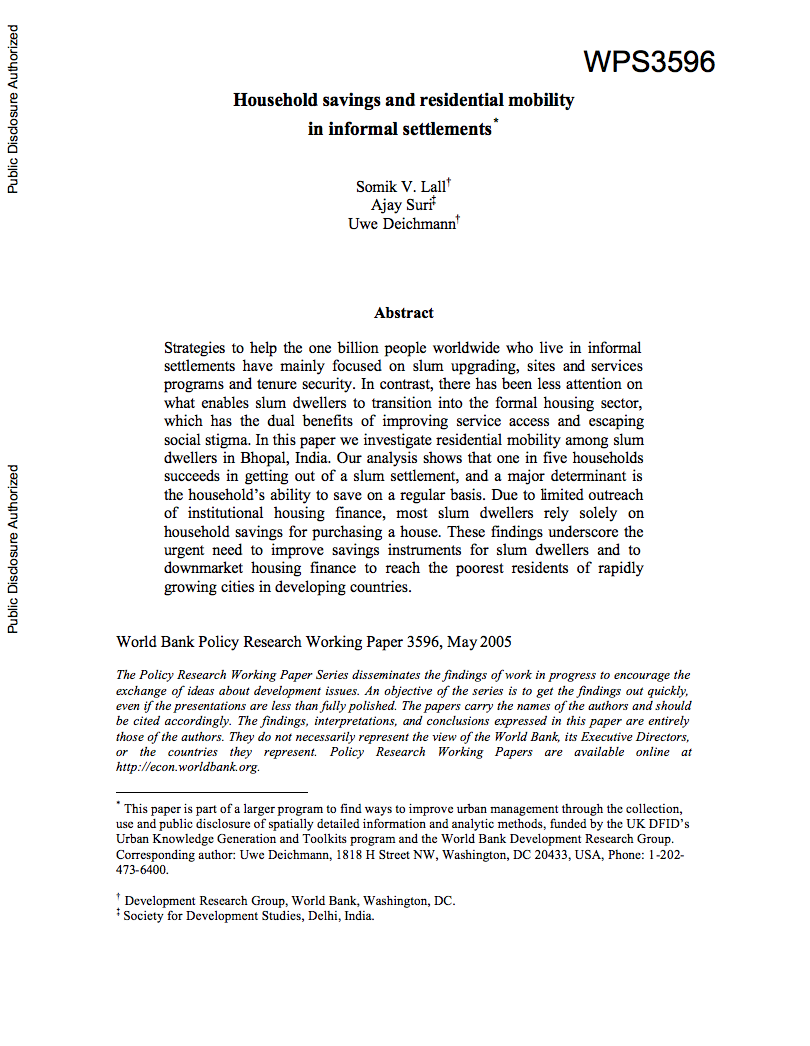Output-Based Aid in Morocco (Part 1) : Extending Water Services to the Poor in Urban Areas
Morocco is a middle-income country with
good water infrastructure that provides access to safe
drinking water and sanitation to the majority of the urban
population. In 2005, Morocco made it a priority to extend
service to poor peri-urban settlements, and encouraged
operators and local governments to reduce connection fees
for their inhabitants. These connection fees had been priced
at marginal cost, which represented a major obstacle for


